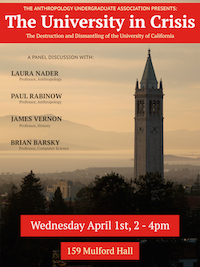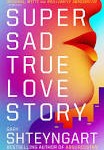by Joseph Jonghyun Jeon
“For anthropologists Edward LiPuma and Benjamin Lee, a compensatory virtue of the 2008 global credit crisis was the extent to which it made visible the otherwise unseen flows of contemporary finance, specifically the rapid emergence of derivatives trading. Trading in derivatives, once a much smaller-scale mechanism for hedging in a production-based economy, was by the early 2000s a primary mode of accumulation in a global environment thoroughly committed to circulatory capital. In 2004 LiPuma and Lee had expressed frustration: ‘How does one know about, or demonstrate against, an unlisted, virtual, offshore corporation that operates in an unregulated electronic space using a secret proprietary trading strategy to buy and sell arcane financial instruments?’ But by 2012, the fog apparently had lifted, the crisis having ‘laid bare the underlying and underappreciated foundations of the financial field.’ An important part of curing the ills of contemporary finance, it seems, perhaps more fundamental than its enormous scale and power, is seeing them at all. At stake is the invisibility of digital apparatuses that constitute networked transactional spaces, calculate financial instruments using complex differential equations, and even enumerate capital itself, which are so central to this modality of circulation that it becomes difficult to separate medium from message.” (Continue reading…)
In this essay Joseph Jeon examines the co-implications of CGI filmmaking, US hegemony, and neoliberal financialization as manifested in Korea’s “IMF crisis cinema.” These films are populated by what he terms neoliberal forms that epitomize the effort in this cinema to reflect on the innate proximity of popular filmmaking to finance, and specifically on the proximity between its own material apparatus and the economic apparatus that the IMF crisis inserted into the center of Korean public discourse.
This essay is from Representations‘ current special issue Financialization and the Culture Industry. The introduction to the issue by C. D. Blanton, Colleen Lye, and Kent Puckett, is available online free of charge.
 Colleen Lye is an affiliated faculty member of the UC Berkeley’s Designated Emphasis in Critical Theory. She is on the boards of Representations, Inter-Asia Cultural Studies and Verge, a new journal on “Global Asias.” She has edited several special journal issues on financialization and the culture industry, peripheral realisms, forms of Asia, and the public university in crisis. One special issue she coedited with Chris Newfield collated activist writings from UC students involved in the 2009 movement against tuition hikes. Her current book-in-progress explores the post-70s crisis in world capitalism through the prism of the Asian American novel.
Colleen Lye is an affiliated faculty member of the UC Berkeley’s Designated Emphasis in Critical Theory. She is on the boards of Representations, Inter-Asia Cultural Studies and Verge, a new journal on “Global Asias.” She has edited several special journal issues on financialization and the culture industry, peripheral realisms, forms of Asia, and the public university in crisis. One special issue she coedited with Chris Newfield collated activist writings from UC students involved in the 2009 movement against tuition hikes. Her current book-in-progress explores the post-70s crisis in world capitalism through the prism of the Asian American novel.







